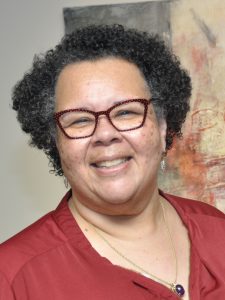
What if Learning is Miraculous?
I do not believe teaching, itself, to be miraculous. I can bear witness to miracles which have come with teaching. The wonders come in the learning. Learning is both improbable and extraordinary.
Classrooms with adult learners can be places where the splendor of miracles is known.
The first kind of miracle depends upon time. On the first day of the course, students racked with hesitation, reticence, nervousness, fear of failure, and fear of success, are the same students, who miraculously, enter the classroom on the final day of class with confidence, sometimes swagger, having metabolized that which they did not know. Time can afford us miracles if we can see the shifts, modifications, accepted considerations, and the full out rethink. Sometimes, over the span of a few semesters, or in-between the first session and the last, through learning activities, discussions, cognitive dissonance, the yearning for wisdom, the torment of grappling with new ideas, and the challenge of grasping new practices, skills, and habits, students learn that the world is more than they previously suspected or feared.
The second miracle happens when the illusion of inferiority is successfully shattered. Teaching is an embodied art. I inhabit any classroom as I am. I am, by the pronouncement of my physical body, an African American, woman, age 60 plus. By U.S. societal norms created by white supremacy, capitalism, patriarchy, misogyny, and racism, I am perceived as inferior. I am, according to the accepted (albeit contested by some) systemic hatreds which permanent social norms, at the bottom of the societal and academy hierarchy. I am, as an older Black woman, less than those who are men, those who are white, and those who are young. The politics of inferiority is operational in society, and these real and dangerous mindsets enter my classrooms in the imaginations of my students. Inferiority is not scientific, but it is a real part of the moral matrix of U.S. society. Regardless of my credentials or standing in the academic community, my students have been given license by ruling power structures to see me as inferior. The miracle is when I can dissuade students, Black, white and otherwise, that the lie of inferiority must be exorcised, purged, eliminated. Most times I have not been successful in provoking this miracle--it is not an easy miracle to summon. But there have been a few times I can bear witness. There have been a few students who have left my courses no longer deceived or duped by patriarchal mindsets. They discover the ability to refuse to live in, and believe in, a narrow world of sameness and homogeneity. They summon the capacity to see a world that is dripping with Maybe? and Perhaps?
This is their miracle - they have had the audacity to accept the keys which unlock their miseducated minds.
The third miracle is the most difficult to perform and not easily witnessed or claimed. It is the miracle of possibility. It is akin to the miracle of ridding students of white supremacy, but not exactly the same. Students, especially adult students, insist upon risk-less learning. They want assurances, guarantees--proof. They prefer learning experiences to be like Disney World simulations, no risk and only gleeful reward. A championing of mediocrity. They want learning that is carefully scripted, with an ending that is foolproof and predictable. With experience, I have learned to watch for the glad surprise in my teaching. It is in the surprise, the unplanned for and sometimes unpleasant, that we have a chance of being visited by new possibility, new opportunity, and perhaps grace. Some semesters, everything happens as planned on cue, and with exacted precision. These are the semesters I know the learning is flimsy.
Beyond these three kinds of classroom miracles, my hunch is that the best miracles happen when I can-- simply and with a Buddhist’s kind of detachment--invite students to take from my teaching what they can.
And so, for our own critical reflection, we ask:
- By the end of your long and productive teaching career, what miracles will you have performed or witnessed?
- What miracles, between now and retirement, will you invoke, provoke, evoke in your classrooms or in your teaching life?
- If one of the tools of teaching is the ability to rely upon, ascertain, identify, or produce miracles, what habits, practices, or strategies will you need to nurture in order to strengthen this capacity?
- When you were a student, what miracles assisted your learning and sustained your knowledges?
Keep in mind that the fulfillment of student learning outcomes, the successful completion of assignments, and the granting of high grades does not necessarily indicate the activity of the miraculous.
Leave a Reply